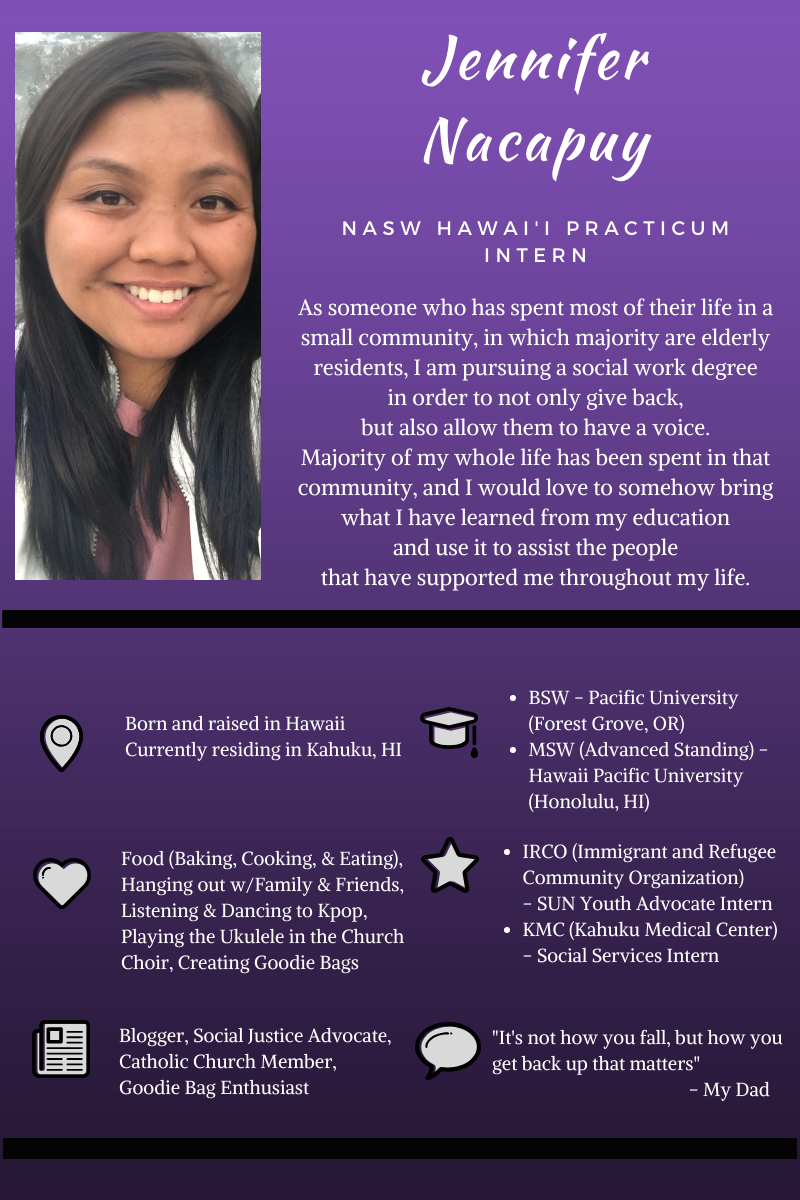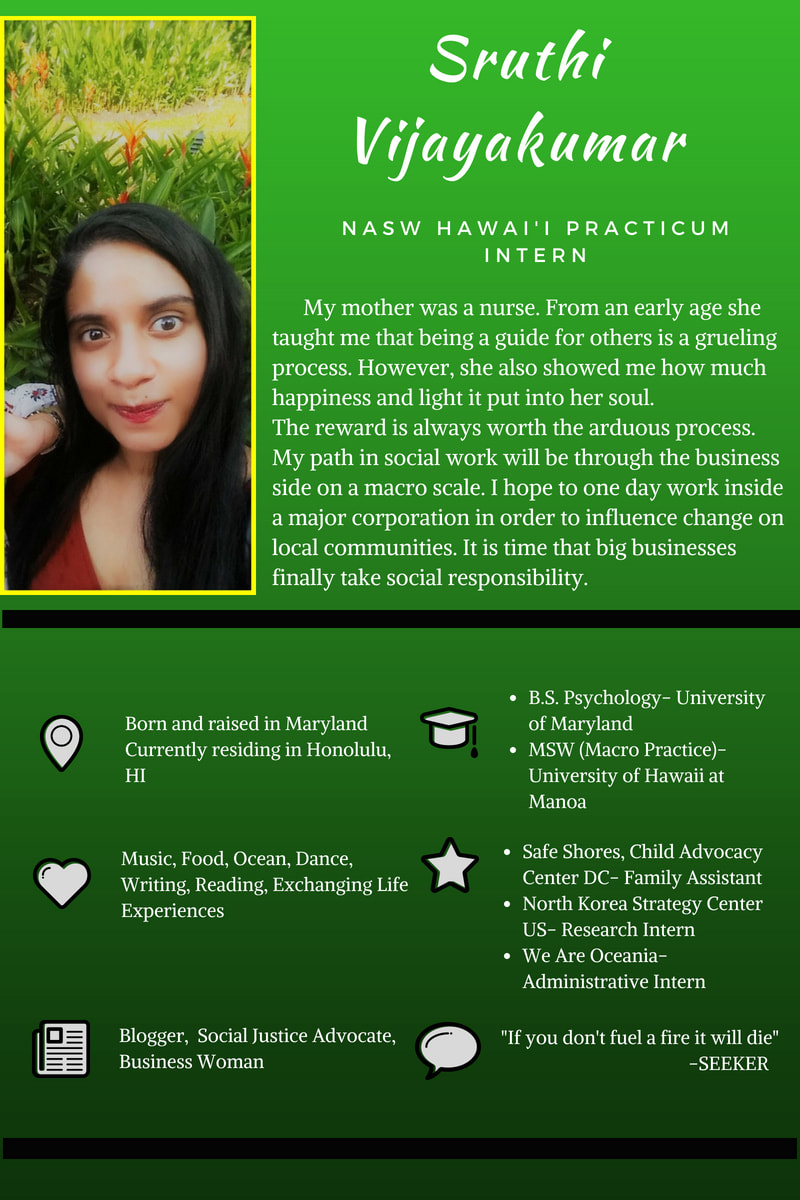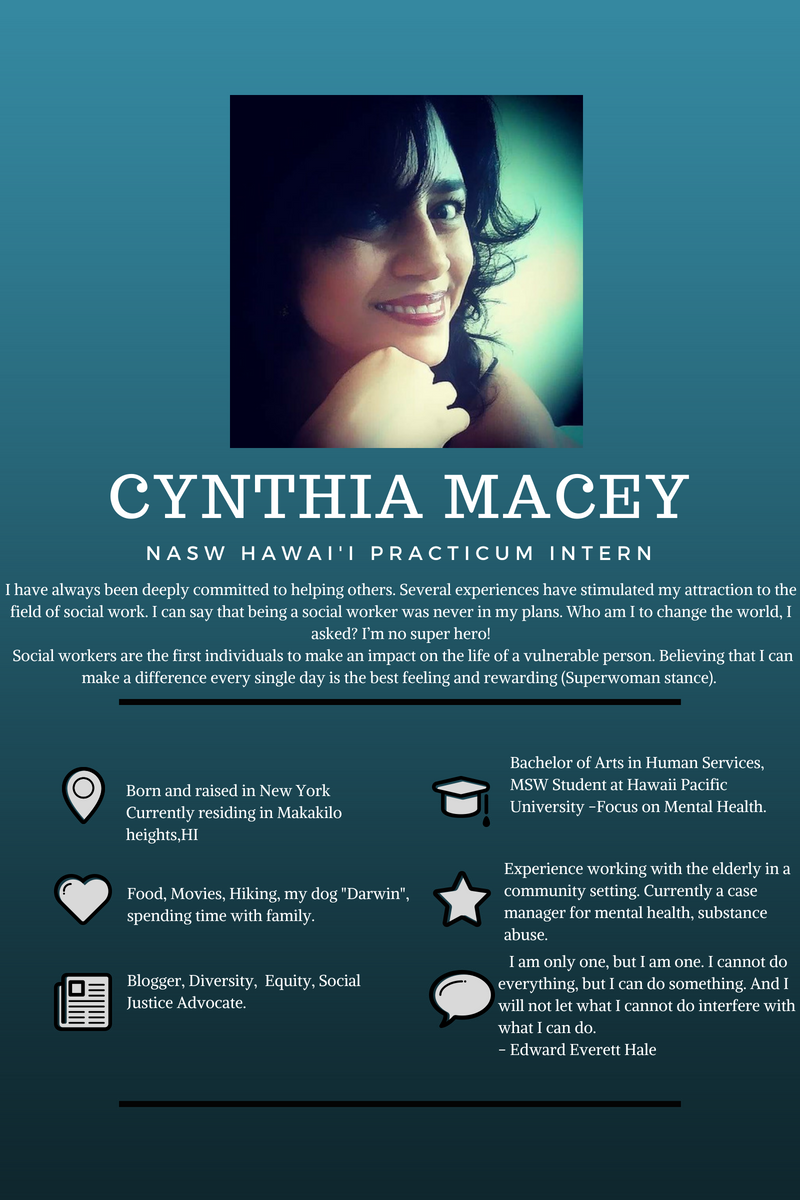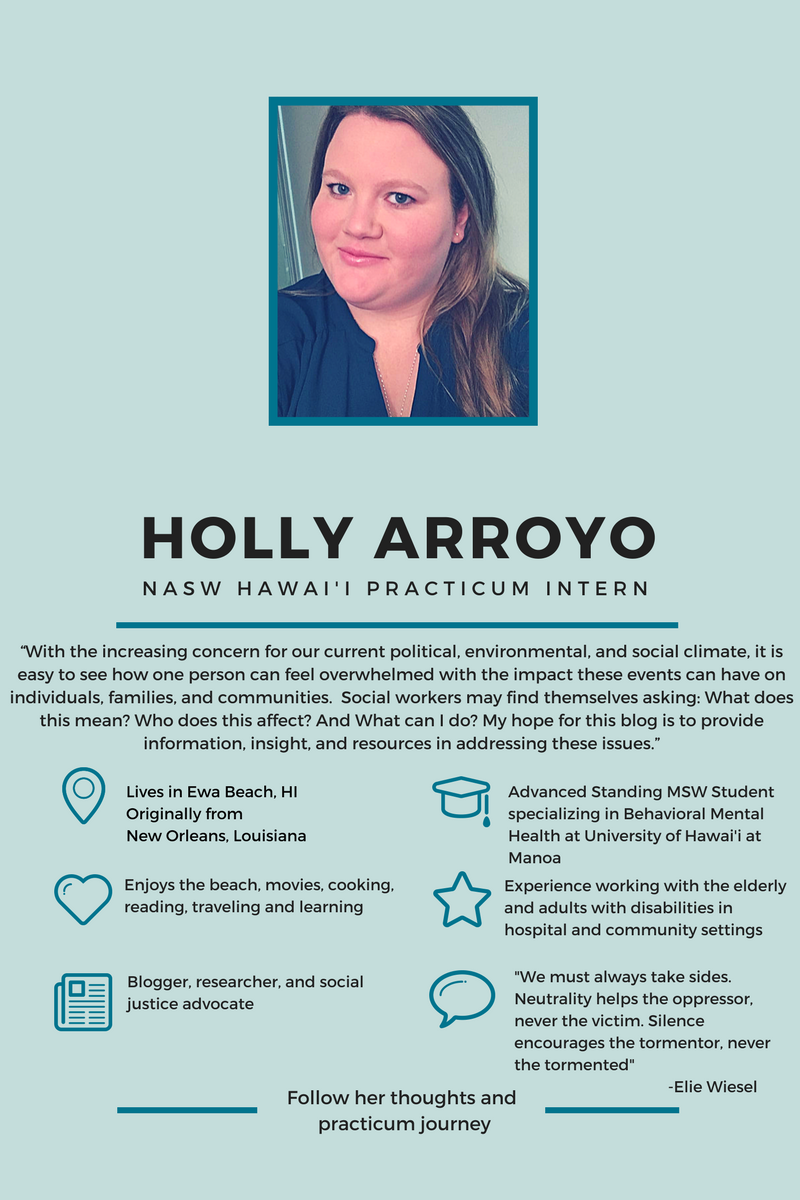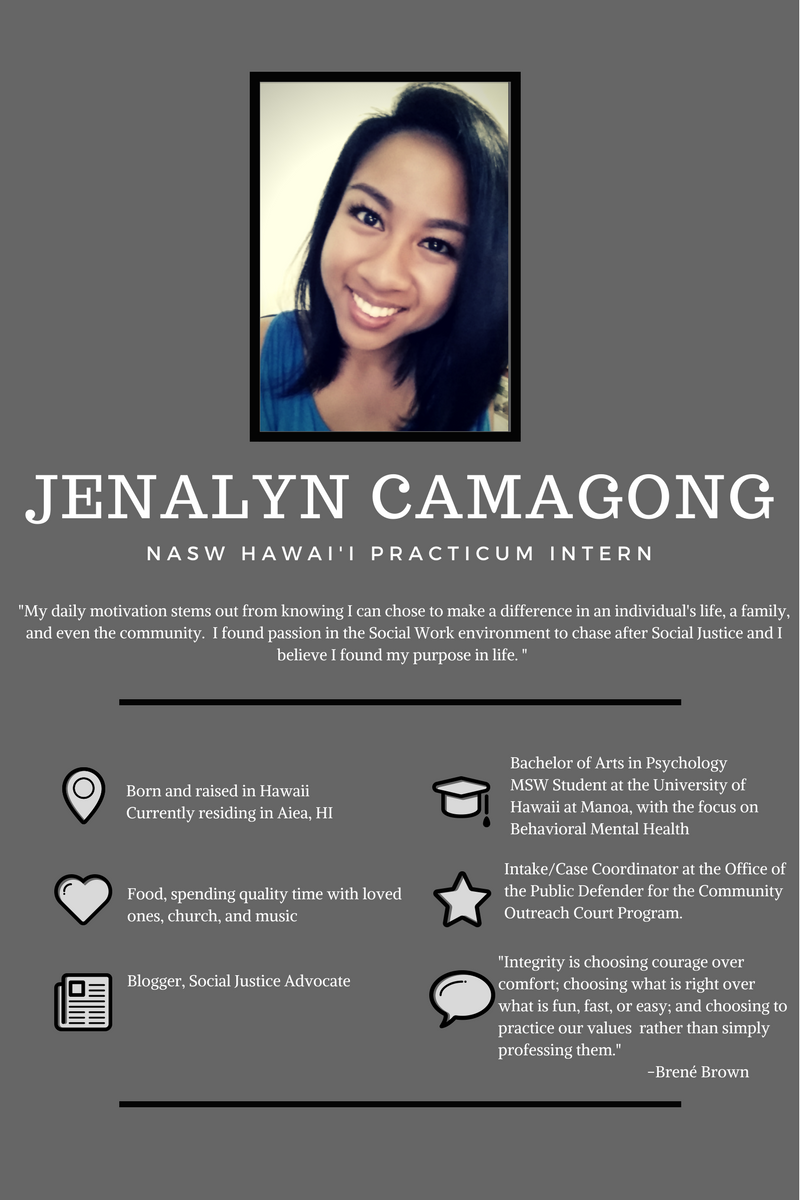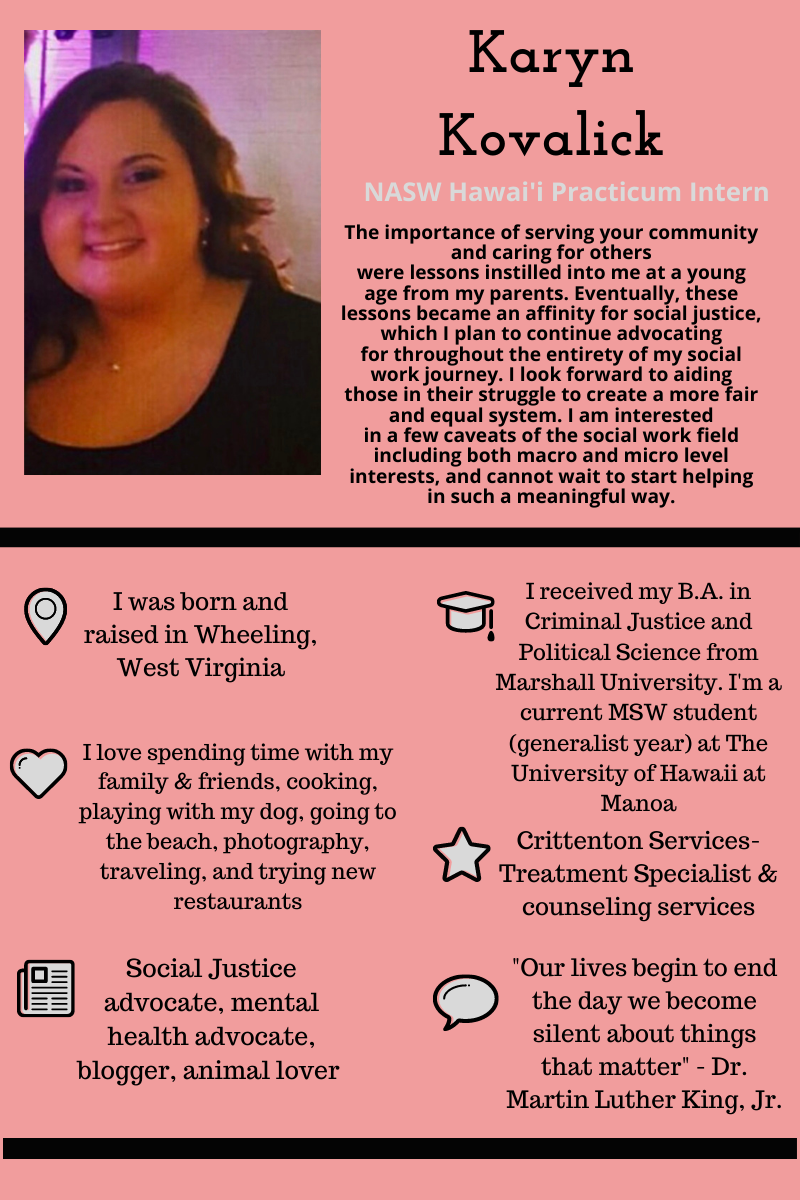|
By: Sruthi Vijayakumar
August 16, 2018 2:30 P.M., my flight from Baltimore/Washington Airport (BWI) landed at Daniel K. Inouye International Airport. After three long months I had finally returned to island, a place where I grew as a person and began my career as a social worker. I was excited to get back into the pace of school and learn a great deal from my new field site at NASW Hawaiʻi. As the following week progressed my joy slowly fell to fear and regret. On Tuesday August 21st my roommate suggested that we go to Costco and stock up on food and water for a hurricane. I asked her, “What hurricane?” “I’m not sure… I read one is going to hit the big island, and will be weak when it approaches Oahu, but just to be safe you know?” She replied unconfidently. I simply agreed, I had to go to Costco anyway so the trip would be beneficial. The hurricane was supposed to be weak and University of Hawaiʻi at Mānoa had not sent any distressing alerts. I went to class, did my usual tasks, and pretended like nothing would happen. By the end of Wednesday, my world turned upside down. UHM sent out various warning emails notifying students of hurricane procedures, last minute hurricane emergency meetings, and evacuation measures. My blood ran cold, earlier that day my friend a Hawaiʻi native, texted me saying that she would not drive the next couple of days due to the hurricane. The fact that someone who was born and raised on Oahu was concerned removed my blanket of calmness. After I read the message I was put in a state of emptiness. Now, with the emergency messages coming to me in floods, I panicked. What could I do? I had nowhere to go, my whole family was back at home. They were safe on the mainland, and I was the only one who had to go to Hawaiʻi during hurricane season. I had experienced a hurricane once before, Hurricane Sandy. It had hit the east coast in 2012. I lived in central Maryland so while there was impact it was not disastrous because I was not located near large bodies of water. Those days, I just experienced minor street flooding and heavy rain. A hurricane on an island. Category 4. Oahu. Hurricane Lane. I restlessly grew to hate that name by Sunday August 26th. UH campuses were closed. Honolulu buses would cease operation by the end of Thursday August 23rd. Our residence halls were provided with bathtub stoppers to fill the tubs with water. My roommates and I filled various pots, trash cans, and containers with water as well. Intermediately, I had to cease hurricane preparation to lay down on my bed. I did not want to face the reality that I might have to fight floods. Strong winds, heavy rains, possible flooding and high surf. These words endlessly circled throughout my brain. Preparedness. I was not prepared, and people who were born and lived on the island were not prepared. No advance warning was provided to caution against travel or notify out of state/island students to move in with caution. Disruption of order, loss of major revenue, damage of institutional image, there could be any reason why major institutions chose not to prepare citizens and travelers well in advance. As social workers, trouble crops up with populations that have no homes and/or lack decent shelter. The website for the city and county of Honolulu posted locations of various shelters throughout Oahu. However, it was noted that these shelters did not provide food, water, or survival supplies. Social workers act as the bridge to resources for these populations on a day to day, but what about a day when social workers themselves are unable to step in. Resolution? In terms of my own personal growth, I realized I have to think ahead with plans in terms of seemingly trivial details such as weather. I have reached an age where I need to structure my life, my resources, and my shelter around possible last-minute emergencies. Therefore, even without advance warning, I will have some type of preparation. As a social worker who wants to focus on macro practice, governmental policies surrounding emergency reserves intended for low SES individuals need to be created. In the event of a disaster, people of all backgrounds will require aide. This means that those who lack resources and support will be forgotten. Instead of simply providing shelters, legislation can clearly outline quantity and designation of emergency food & water, survival supplies, and medical tools ready for distribution. These basic procedures can be put in place in order to aide many lives. Presently, these populations need to be given a second thought. Nobody was prepared for Hurricane Lane, but those who were caught off guard the most were people who depend on social services for support.
0 Comments
|
Author2020 Spring Semester blog posts are written by Jennifer Nacapuy. 2018-2019 Academic Year blog posts are written by Sruthi Vijayakumar & Cynthia Macey. 2017-2018 blog posts were written by Holly Arroyo & Jenalyn Camagong CATEGORIES
All
ARCHIVES
September 2020
|

